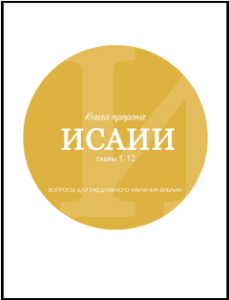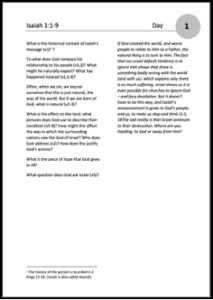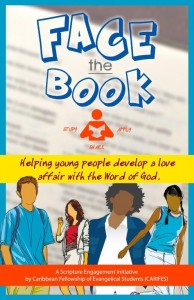 As a student, I grew in my faith by developing the habit of studying the Bible every day.
As a student, I grew in my faith by developing the habit of studying the Bible every day.
In the UK, it was no problem to access resources that were appropriate to my situation, helped me understand what the text was saying and to consider what it meant for me as a young man.
Old translations, foreign materials
I have worked with the IFES movements in Central Asia for twenty years. While I’m always encouraging students to grow in their faith by studying the Bible for themselves, there has been almost nothing available in Russian to help them do this. Moreover, the most widely-used Bible version, the Russian Synodal Translation (RST), was itself translated in 1867 from the poetic and even older Church Slavonic language! Despite the fact that Biblica has produced a new Russian translation, many churches still use the RST.
Using foreign materials can prove problematic because of Bible study questions focussing on particular words that don’t make sense when reading from a Russian Bible translation. Also, these materials sometimes reflected ways of thinking or cultural issues that are alien to Central Asian students.
We needed to write our own questions which would help students engage with the Bible using the RST (but also work with the newer translation). These questions would reflect their level of understanding and be attentive to issues that were pressing for them (as well as seek to correct some common theological errors).
The COVID lockdown provided the final push:
We prepared Bible study questions and posted them daily on our church’s Telegram channel. Although written with students in mind, they have been useful to and appreciated by people aged 14-65+, as well as younger teens, couples, and house groups.
Experience showed that as well as supplying questions for the observation, interpretation, and application of the text, we also needed to provide a short explanation, or reflection, which summarised its key points.
Post-COVID, we decided to publish booklets with the material, encouraging students (and others) to have a phone-free quiet time – each booklet contains daily studies for one book of the Bible. To date, we’ve distributed about 250 copies and are encouraged by the testimonies of readers who have been really moved by God’s Word. For the most part, it has actually been older Christians (including those in Christian ministry!) who have come to understand parts of Scripture more deeply. Often people have said: “I’ve read this so many times before, but never seen that.” We hope to see more students using these booklets for daily quiet times, and we rejoice in every story of someone being impacted by studying God’s Word.
Paul
Former General Secretary of a Eurasian National Movement




 I became a Christian when I was 16 and my life was turned around – I experienced joy and suddenly had a purpose in life. At the same time, I was hungry for reading the Bible and my journey with Scripture began then and there.
I became a Christian when I was 16 and my life was turned around – I experienced joy and suddenly had a purpose in life. At the same time, I was hungry for reading the Bible and my journey with Scripture began then and there. After each of these ‘retreats’, I came back with a fresh mandate! A clearer calling of how to proceed. For me, these retreating times are not an option, but an oasis where I can drink deeply and make space for life. So, I know for myself, 2017 was a year of ‘hard knocks & tough schooling’, yet it was the year I am certain ‘he carried me on eagle’s wings & sang his song over me by night.’
After each of these ‘retreats’, I came back with a fresh mandate! A clearer calling of how to proceed. For me, these retreating times are not an option, but an oasis where I can drink deeply and make space for life. So, I know for myself, 2017 was a year of ‘hard knocks & tough schooling’, yet it was the year I am certain ‘he carried me on eagle’s wings & sang his song over me by night.’

 that after reading through the Bible, students would start to appreciate the big picture and see how individual passages fit into this context.
that after reading through the Bible, students would start to appreciate the big picture and see how individual passages fit into this context.  Sadness, confusion and apathy surrounded me as I walked through this spiritual desert. I could not “fix” myself, nor could other people help me – their words went into my ears, but did not reach my heart.
Sadness, confusion and apathy surrounded me as I walked through this spiritual desert. I could not “fix” myself, nor could other people help me – their words went into my ears, but did not reach my heart.